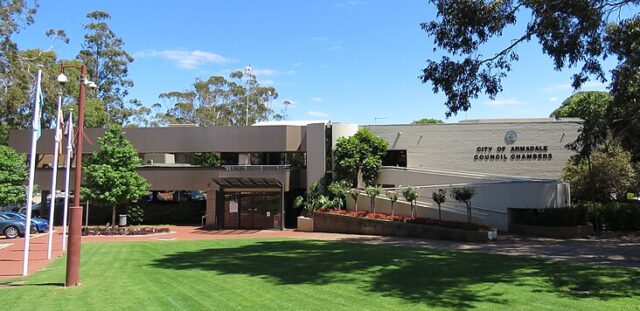Council meetings in the City of Armadale are usually little more than a perfunctory exercise to ratify predetermined resolutions – its chambers more ‘rubber-stamping room’ than the ‘den of dissent’ that often colours the minutes of other local governments.
But if there’s one topic that’s sure to add some spice to the mix, it’s rates.
In April, city officers recommended a 3.9 percent rate rise this year, in line with the Local Government Cost Index – akin to the ABS’s Consumer Price Index (CPI), but more appropriate to the unique functions of local government.
For reference, the Shire of Serpentine Jarrahdale recently advertised a rate increase of 3.4 percent on par with Perth’s CPI over the past 12 months.
A bold attempt by Cr Scott Mosey to increase the rates by 4.4 percent was quickly shot down by the Corporate Services Committee, who opted to take the 3.9 percent figure to the full council.
At the April 22 council meeting it was time for the councillors from the western front to take a tilt at a more modest rate rise.
Cr Shanavas Peter introduced a motion to raise the rates by 2.9 percent – a move supported by Crs Michelle Silver, Keyur Kamdar and Caroline Wielinga.
But the oxygen was promptly squeezed out of that motion.
Deputy mayor John Keogh returned fire, again rallying for the greater-than-recommended 4.4 percent rise, and flanked by Crs Scott Mosey, Kerry Busby and Gary Smith.
But that too was killed in action.
A compromise was struck and the middle-of-the-road 3.9 percent hike that city officers proposed was agreed to.
Despite appeals from the public for compassion during a time rife with increasing financial pressure, council again agreed to the 3.9 percent increase in May after the close of submissions.

And, last Monday, council passed the 2024/25 budget, with the 3.9 percent rate rise for all local landholders.
While this news will undoubtedly cause more pain to already-struggling households, the truth is the City of Armadale’s impending rate rise is modest in comparison to many other Perth councils’, with Fremantle advertising a 5.4 percent increase, Canning a 6.5 percent rise, and Victoria Park an eye-watering 8 percent hike.
Having said that, residents in Perth and Stirling will cop a less-than-three percent hike on last year’s rates.
Officers explained there was a difference in need between the still-growing City of Armadale and cashed-up inner city councils.
“Put simply, if a district has a higher density or a greater proportion of commercial or industrial development, then the average residential rates will be lower,” they said.
“As development progresses, and in particular future commercial and industrial developments, it is likely that council will have the ability to reduce the level of residential rates.”
Despite a 4.5 percent whack to rates last year, the City of Armadale said it had protected residents from the full force of cost creep over the past five years.
“Between 2019 and 2023, the city increased rates by a total of 8.55%, an average of 1.71% per annum, to meet increasing cost. Over that same period, the LGCI actually rose by 15.8%, an average of 3.16% per annum. The gap between the LGCI and rate increases over that period was 7.25% or in dollar terms, $33.7M cumulatively over the five years,” officers said.














